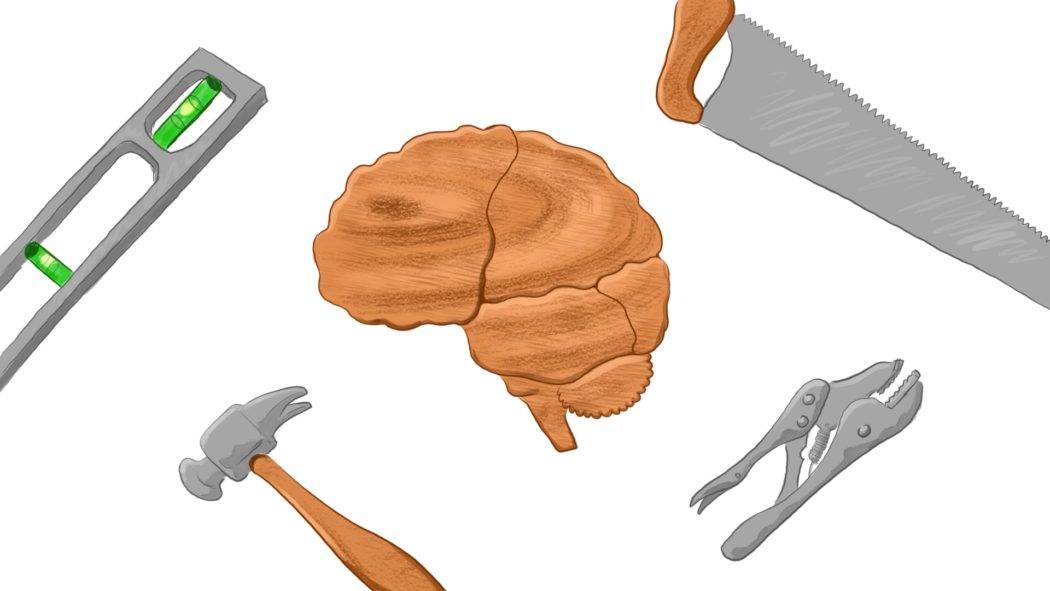Opinion: A tool box for constructing better mental health
It’s like drowning, except you can breath. It’s like being run over by a semi without the broken bones and bruises to prove it. It’s like looking through a one-way mirror that you’re convinced no one else can see. It’s something you can’t find the words to explain to anyone, even though it’s real.
On both my mother and my father’s side, depression and anxiety runs in the family. I can see it, in my cousins, in my grandparents, in my siblings and in myself. And it seems to run in my chosen family as well.
In the past two months alone Utah State University has lost valuable, irreplaceable members of the Aggie family to the depths of hopelessness that have enveloped many people over the past year.
But long before COVID-19 was a concern in our mind, this was a problem. Over the past twenty years, suicide rates have steadily been rising in the US.
As a person who has both seen and experienced the struggles of mental health disorders, I can tell you that it’s not easy and it’s a little different for every person. Part of the problem is that people think that there is some magic spell, or formula, or Felix Felicis potion that would make it just go away but there isn’t.
Honestly, in some ways, it never really goes away. But this doesn’t mean that people who struggle with mental health are doomed to a miserable and broken life. Like people who are diagnosed with chronic physical conditions, the secret to living happily with mental health problems is good management. And to manage something correctly, you have to have the right tools.
Over the years, I’ve put a tool box together for handling my anxiety. I’m not an expert or a psychologist, but I know what works for me, and in what situations.
For example, I personally find social situations extremely anxiety-inducing. When I walk into a party (when we still did that) who am I supposed to talk to? Where am I supposed to sit? What should I eat and how much?
I always feel so out of place. I don’t know how to effectively communicate with the other people around me, and I’m constantly worried about how other people perceive me. When I can feel my heart rate rising, my face flushing, and my palms beginning to sweat, I start to dig around in my tool box for the right technique to help me handle it.
My breathing is my level. Sometimes fast, and sometimes slow but often right in the middle, it stabilizes me. As I focus on it, everything else comes into balance.
My care for my physical health is my hammer. Without repeatedly pounding in the nails of self-care, everything else falls apart. Eating regularly, taking time to exercise for even just twenty minutes, rubbing lotion on my skin, and so many other simple health practices work miracles for the wars I fight in my head.
My acceptance of failure is my saw. My failure splits my hopes, cuts things down to size, and often leaves me wishing I had measured a second time. My acceptance of my failure gives me the opportunity to make something new out of those pieces. Everyone fails, and the more that I do it, the more I realize it isn’t the end of the world.
And people are my vise-grips. They give me a reason to keep holding on. We live in a world where it’s more possible than ever to be in contact with the people we care about. I reach out, make plans, and enjoy all the time I can with the people that matter the most to me (and I meet new people when I can).
Hopefully, you found something in my toolbox worth tucking into your own, but at the end of the day that’s not really the point.
The point is, there are tools, methods, techniques, and medication to combat mental health disorders. And if there are tools, there is hope.
At this point it is worth noting that if you’re really struggling with a mental health issue, you should consider getting help from a specialist. You wouldn’t attempt to take out a tree with a handsaw, and you don’t have to tackle major mental health problems by yourself, either! There are lots of resources on campus to help students who are struggling with stress, depression, anxiety, and many other mental health problems. If you need immediate help, the National Suicide Prevention Lifeline is available to anyone 24/7 and it’s free and confidential.
Again, mental health problems don’t ever really go away. The only thing I don’t like about my toolbox analogy is the idea that tools “fix” the problem. They don’t fix it. But they do turn something that is impossible to handle into something that’s manageable.

Emeline Haroldsen is a dual Mathematics and Biochemistry major. She’s originally from Maryland and she enjoys most forms of physical activity, playing the piano, and completing her homework on time.
emeline.haroldsen@usu.edu

